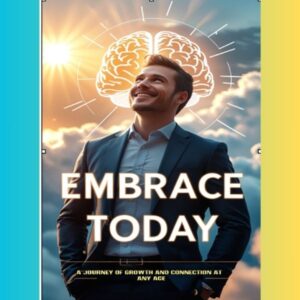Faith in Action: How Belief Can Transform a Broken World
As an author and scholar who has spent years studying the intersection of faith and social impact, I’ve observed countless examples of:
- how belief systems shape individual behavior and collective outcomes.
- Through my research and personal experiences, I’ve come to realize that the most profound and lasting changes occur when faith transitions from an internal state to an external force for good.
- This book aims to bridge the gap between theoretical discussions of faith and its practical applications in everyday life.
- By examining the concept of transitive faith – belief that actively engages with and influences the world around us .
- we’ll explore how individuals can harness their spiritual convictions to create positive change in their families, workplaces, and communities.
- Discover how transitive faith transforms belief into actionable change, empowering individuals to positively impact families, workplaces, and communities.
- Discover how Belief Can Transform a Broken World.
-
Belief systems—whether religious, political, cultural, or philosophical—play a critical role in shaping both individual behavior and collective outcomes. Here’s how they exert their influence:
1. Individual Behavior
a. Norms and Morality
Belief systems often define what is considered “right” or “wrong,” guiding personal choices and ethical conduct.-
Example: A person who believes in karma may avoid harmful behavior, thinking it will have consequences in the future.
b. Identity and Purpose
They give individuals a sense of identity and meaning, influencing long-term goals and day-to-day decisions.-
Example: Someone raised in a faith-based tradition may prioritize service, prayer, or community engagement.
c. Emotional Regulation
Belief systems provide frameworks for interpreting events, which can reduce stress or shape emotional responses.-
Example: Believing that “everything happens for a reason” can offer comfort during difficult times.
2. Collective Outcomes
a. Social Cohesion or Division
Shared beliefs can unify people into communities or nations, but differing beliefs can also lead to conflict.-
Unifying Example: Nationalism can foster solidarity and civic responsibility.
-
Divisive Example: Sectarian differences may lead to polarization or even violence.
b. Institutions and Policies
Belief systems influence the creation of laws, education systems, and political structures.-
Example: Many legal systems are historically based on religious or philosophical tenets (e.g., Judeo-Christian ethics in Western law).
c. Economic and Development Patterns
Cultural values tied to belief systems can shape attitudes toward work, innovation, and cooperation.-
Example: Max Weber’s theory of the “Protestant work ethic” linked religious belief to the rise of capitalism.
3. Long-Term Cultural and Historical Impact
Belief systems help define what a society values, remembers, and passes on to future generations. They influence art, literature, science, and social norms in ways that last for centuries.
-




Reviews
There are no reviews yet.